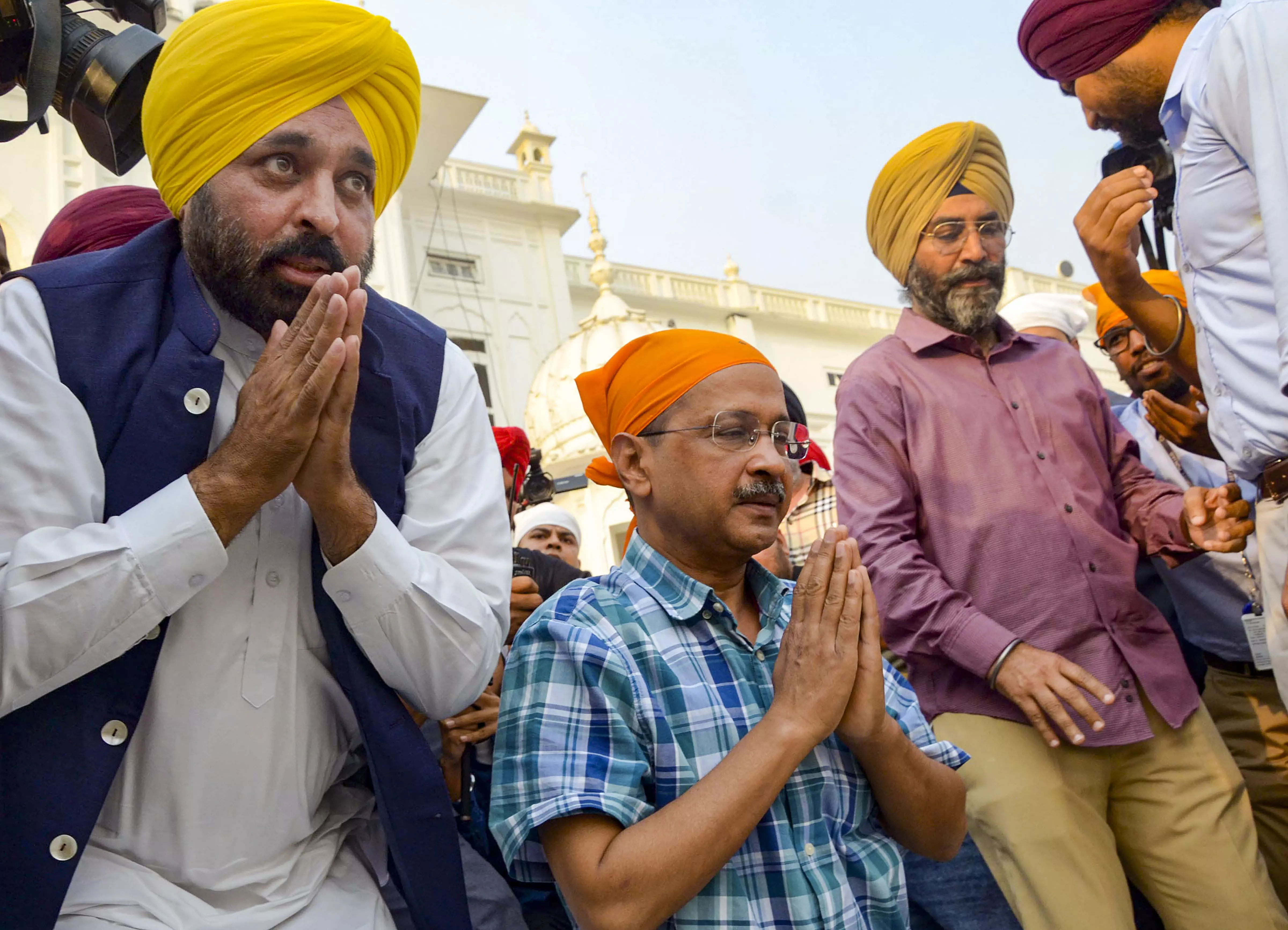SC Defends Interim Bail for Arvind Kejriwal Amid Election Campaign

NEW DELHI: The Supreme Court on Thursday said it did not carve out an exception for Delhi chief minister Arvind Kejriwal while granting him interim bail till June 1 to campaign for the Lok Sabha elections and added that “critical analysis or even criticism of the judgment is welcome”.
“As far as critical analysis or even criticism of the judgment, it is welcome. There is no difficulty. You may have different viewpoints, we have no difficulty with that,” Justice Sanjiv Khanna said, presiding over a two-judge bench, also comprising Justice Dipankar Datta, hearing Mr Kejriwal’s petition challenging his arrest by the Enforcement Directorate in connection with the Delhi excise policy scam case.
The top court junked the ED’s plea for action against out-on-bail Mr Kejriwal for statements related to the grant of interim bail to him. The bench said that the Delhi CM’s statement "If you vote for the AAP (in the ongoing Lok Sabha polls), I won't have to go back to jail" did not violate his bail terms.
The apex court told the ED that Mr Kejriwal's comment constituted his personal opinion and said, "It is his assumption... We cannot say anything. Our order (on the AAP chief returning to jail on June 2) is clear. That is the decision of this court and we will be governed by the rule of law..."
During the hearing on Mr Kejriwal's challenge to his arrest in the money laundering case linked to the excise policy “scam”, the ED told the apex court that it will soon file a prosecution complaint (chargesheet in police parlance) against the Delhi chief minister and the Aam Aadmi Party. Additional solicitor-general S.V. Raju said the probe agency has enough evidence to show that Mr Kejriwal demanded a `100 crores bribe, which was used by the AAP in the Goa Assembly poll campaign.
"We have direct evidence that Mr Kejriwal stayed in a seven-star hotel, whose bills were partly paid by an accused in the case," Mr Raju submitted, adding that the chief minister played a key role in the formulation of the now-scrapped Delhi excise policy.
Mr Raju alleged that the AAP convenor was “vicariously responsible” for the alleged scam.
The top court bench refused to consider claims and counterclaims by counsel for the ED and Mr Kejriwal on political statements related to the grant of interim bail to the AAP national convenor.
The top court said, "We have not made any exception for anybody. We said in our order what we felt was justified."
Solicitor-general Tushar Mehta, appearing for the ED, questioned Mr Kejriwal's speeches in poll rallies that if people voted for AAP, he would not have to go back to jail on June 2.
Mr Mehta said that if this court starts interfering at the remand stage, it will open the doors for powerful people to approach the apex court directly without following the procedure prescribed under the Code of Criminal Procedure. "There are certain in-built safeguards provided under Section 19 of the PMLA, which deals with powers of arrest of ED officers. The more rigorous the provision of arrest, the less scrutiny by courts," the S-G said.
Stating that the court's order is clear that Mr Kejriwal has to surrender on June 2, Justice Khanna said, "We have not said anything in the order that he cannot speak about the case."
Without naming Union home minister Amit Shah, senior advocate Abhishek Singhvi, representing Mr Kejriwal, referred to an interview where he said many believe the court accorded "special treatment" to the AAP leader.
The bench told Mr Singhvi it will not go into that.
Denying that Mr Kejriwal had made any statement about having to go back to jail if people did not vote for his party, Mr Singhvi said he can swear an affidavit to that effect.
On May 10, the apex court had granted Mr Kejriwal interim bail till June 1, the last day of the seven-phase Lok Sabha elections and directed him to surrender and go back to jail on June 2.
The top court had, however, barred Mr Kejriwal from visiting his office or the Delhi secretariat and signing official files unless absolutely necessary for obtaining the lieutenant-governor's approval.
The ED had arrested Mr Kejriwal on March 21 on money laundering charges in a case relating to alleged corruption and money laundering in the formulation and execution of the Delhi government's excise policy for 2021-22, which was scrapped subsequently.

